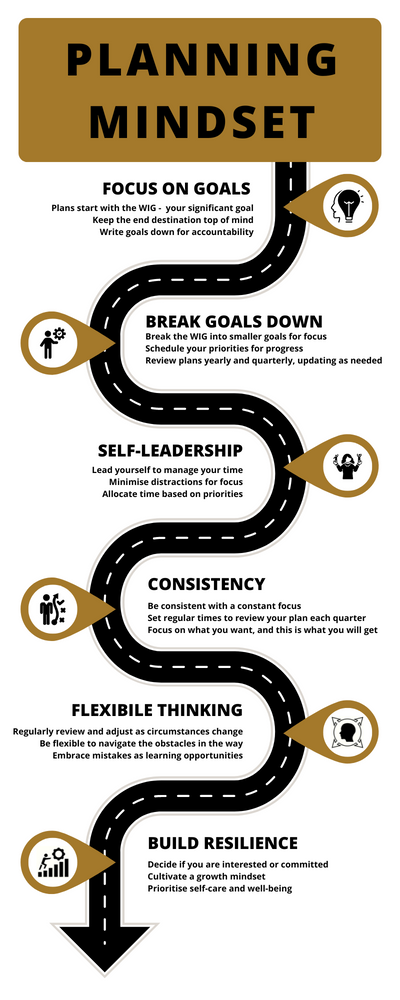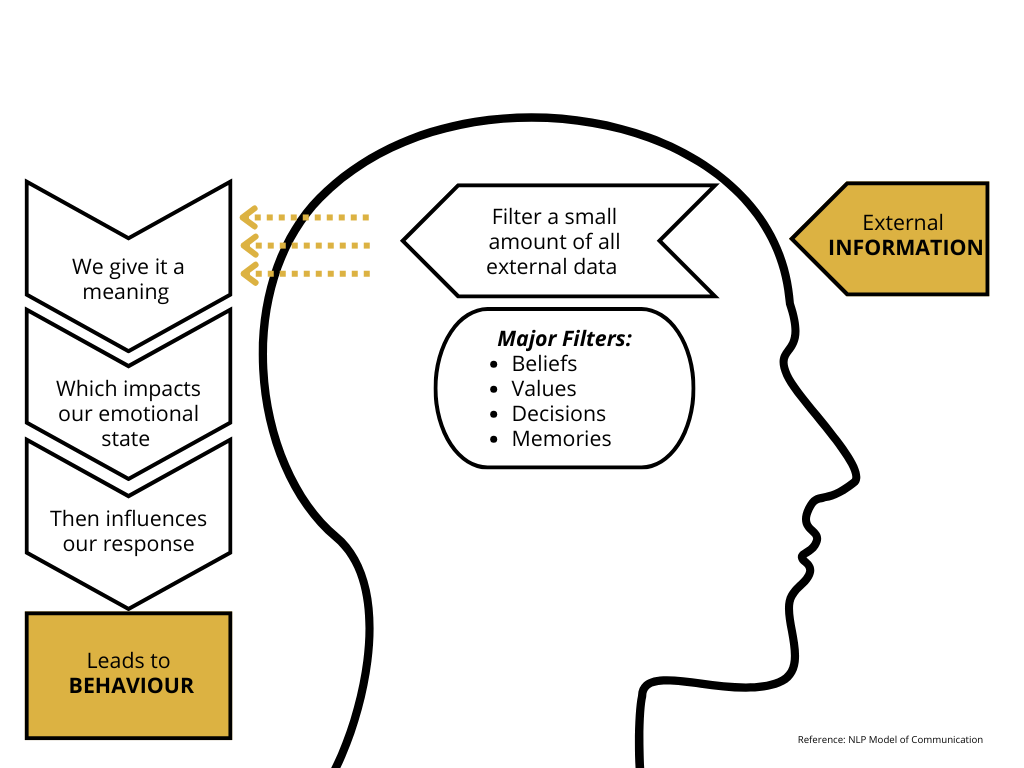The Mindset Behind Successful Planning
Planning is a necessity in business. Many business leaders think it is an optional activity; however, it is not. Setting goals and planning to achieve them is crucial for a business to succeed, whatever that means. Having a plan and planning are two different things.

Planning is like going on a journey. You have a starting point, where you are now, and an endpoint, the destination; let's call it a goal. It is not even about achieving the goal; it is about having a destination to go toward. The plan created to achieve the goals is the roadmap for the journey, and the planning is going on the trip.
"If you fail to plan, you are planning to fail"
Benjamin Franklin
Planning is crucial because if you have yet to plan to get you from where you are now to where you want to be, how will you know when you get there? Or, even more integral, how will you know how to get there? Over my years of coaching business owners, leaders, and entrepreneurs, I have been surprised by the many stories of how they have been in business for five or ten years and have made progress yet are working crazy hours and doing everything themselves to keep things going. They have recognised that they want things to be different and do not know how to make that happen - enter the value of planning. As Benjamin Franklin stated, ‘If you fail to plan, you are planning to fail.” While there is no doubt there will be learnings and feedback, having a plan and planning is the best strategy for success.
It all starts with a decision to build on your leadership skills, including learning how to plan, making a choice to achieve the desired success, and developing a mindset for planning to implement effective plan execution to achieve the goals. The exciting thing about plans and planning is that you do not even have to enjoy doing it; you need to be committed to doing it. Getting support, mentoring, or coaching will also help you to navigate any resistance you may have to planning. The fact is that everyone needs support at different stages; however, telling yourself you do not need to do your planning is preparing yourself to fail over time.
So, let's assume the decision has been made to plan. The choice to achieve the desired success is a no-brainer. What is needed to get started is understanding what it means to have a mindset for planning.
Here are five key aspects to consider when developing a mindset for successful planning:
#1 - Focus on your goals
Plans start with knowing your big goal, your 'Wildly Important Goal'. Focus on achievable goals and understand your plan's purpose and desired outcomes. Always keep the end destination in mind and be willing to hold yourself accountable.
#2 - Break goals down.
Breaking the big goal down is a crucial part of planning. Having a plan and ongoing planning are different. Breaking your plan down into smaller goals allows for prioritisation and focus. Know that obstacles and unforeseen things will get in the way, so this prioritisation helps navigate any business's daily whirlwind. Review plans yearly and quarterly and update them regularly as needed. Use planning tools and calendars to stay organised and believe in your ability to execute effectively .
#3 - Lead yourself to be your most productive.
Your time can only be managed with self-leadership. We all have plenty of time and the same amount of time. It comes down to how we choose to use our time. Everything is a choice, and how you lead enables you to allocate time based on your priorities. This also allows you to minimise distractions that are not priorities and achieve deadlines to stay on track.
#4 - Consistency and flexibility are key.
Plans require a constant focus that is consistently applied, and cultivating a growth mindset will serve you well. Focus on what you want, and this is what you will get. A flexible growth mindset and thinking work in business, but a fixed mindset does not. Being flexible with how you think and act will support the success of your plan as it changes. Embrace mistakes as learning opportunities and approach planning with a positive attitude.
#5 - Develop strong planning habits.
When you are committed and loyal to your plan, you will achieve success. Regularly review your progress and reflect on what’s working and what isn’t. Learn from successes and mistakes to improve future planning. There is no such thing as failure, only feedback. Commit yourself to getting support. Everyone needs a hand up now and then, as no one knows it all.

Dwight D. Eisenhower believed that " Plans are nothing; planning is everything”. The way he meant this to be understood is that whatever you plan, you will be obliged to deviate from in response to circumstances and unplanned situations that will occur. So, a mindset for planning involves adopting attitudes and approaches that facilitate effective preparation and execution of plans. Adopting a mindset for planning can help ensure that your process is thorough, effective, and adaptable to changing circumstances. Be assured there will be changes, and being effective with planning will help you navigate the roller coaster ride.
If you would like to help develop your ability to plan and have a mindset for planning, book a
complimentary strategy session,
and we will connect.





